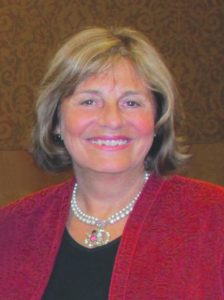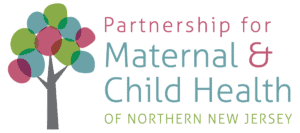The recipient of this award has proven efforts in educating health professionals and/or expectant families about stillbirth prevention or care. Their work will reflect recent evidence and be aimed at improving outcomes for families. This award is available to individuals in the United States.
- Sue Steen, RN – Sue holds nursing degrees from Gustavus Adolphus College and the University of Minnesota. She is a Perinatal Loss Navigator at Maple Grove Hospital and faculty at Bethel University. Her nursing and teaching career has focused on maternal/child health and she has published a number of articles related to spiritual care and faith development in children and perinatal bereavement. Sue is dedicated to educating her colleagues about caring for bereaved families both locally and internationally. “Sue has been my mentor and shown me that these tragic situations can be beautiful moments for us and the family.”
 Rana Limbo – Rana Limbo, PhD, RN, PMHCNS-BC, FAAN, is the manager of faculty, research, and development for Bereavement and Advance Care Planning Services, Gundersen Health System, La Crosse, Wisconsin. She has been involved in perinatal bereavement work as a nurse since 1981. She was the first coordinator of Resolve Through Sharing and is the author of numerous articles and book chapters. Her first book, co-authored with Sara Wheeler, When a Baby Dies: A Handbook for Healing and Helping, published in 1986, is considered a classic and is widely used by parents and professionals. She is a Fellow in the American Academy of Nursing and an elected member of the International Work Group on Death, Dying, and Bereavement.
Rana Limbo – Rana Limbo, PhD, RN, PMHCNS-BC, FAAN, is the manager of faculty, research, and development for Bereavement and Advance Care Planning Services, Gundersen Health System, La Crosse, Wisconsin. She has been involved in perinatal bereavement work as a nurse since 1981. She was the first coordinator of Resolve Through Sharing and is the author of numerous articles and book chapters. Her first book, co-authored with Sara Wheeler, When a Baby Dies: A Handbook for Healing and Helping, published in 1986, is considered a classic and is widely used by parents and professionals. She is a Fellow in the American Academy of Nursing and an elected member of the International Work Group on Death, Dying, and Bereavement.
 Sherokee Ilse – Sherokee brings 3 decades of experience to this new paradigm of care. As a bereaved parent herself, she has helped to bring much positive change to how bereaved parents are cared for through her tireless work. In the early years, she championed the new idea of seeing, holding, meeting, and parenting babies who had died, which was uncommon and misunderstood. As a trainer and advocate for peer support for newly bereaved for 30+ years, Sherokee and a team of dedicated professionals and parents created the first Baby Loss Doula certification program to help ensure that more parents worldwide would be given continuity of care and wise advice throughout their loss experience. Sherokee has encouraged and inspired caregivers to give more fully informed guidance along with compassionate care to families experiencing the death of their sons and daughters. As a mentor to many, Ilse persistently continues to advocate for change; lately her initiatives include infant loss research and prevention,, self-transport and home care after death following miscarriage, stillbirth, and other infant deaths, improved care for miscarrying parents, and reducing the rush to delivery after a baby dies. Sherokee is the author of 18 books and booklets on infant loss and bereavement including her the book used by many hospitals to help newly bereaved families at the time of their loss–Empty Arms.
Sherokee Ilse – Sherokee brings 3 decades of experience to this new paradigm of care. As a bereaved parent herself, she has helped to bring much positive change to how bereaved parents are cared for through her tireless work. In the early years, she championed the new idea of seeing, holding, meeting, and parenting babies who had died, which was uncommon and misunderstood. As a trainer and advocate for peer support for newly bereaved for 30+ years, Sherokee and a team of dedicated professionals and parents created the first Baby Loss Doula certification program to help ensure that more parents worldwide would be given continuity of care and wise advice throughout their loss experience. Sherokee has encouraged and inspired caregivers to give more fully informed guidance along with compassionate care to families experiencing the death of their sons and daughters. As a mentor to many, Ilse persistently continues to advocate for change; lately her initiatives include infant loss research and prevention,, self-transport and home care after death following miscarriage, stillbirth, and other infant deaths, improved care for miscarrying parents, and reducing the rush to delivery after a baby dies. Sherokee is the author of 18 books and booklets on infant loss and bereavement including her the book used by many hospitals to help newly bereaved families at the time of their loss–Empty Arms.
 Craig Rubens, MD, PhD, is co-founder and executive director of GAPPS at Seattle Children’s. An internationally recognized infectious disease expert, Craig leads GAPPS’ work in program development and strategic partnerships that leverage cross-disciplinary science to accelerate a discovery-to-delivery pipeline for improving maternal and newborn care and ultimately preventing prematurity and stillbirth. Craig is a professor of pediatrics and global health at the University of Washington School of Medicine. He is a member of many prestigious medical and scientific societies, including the American Pediatric Society and American Society of Clinical Investigators. He is on the Board of Scientific Counselors for the National Institute for Allergy and Infectious Diseases and has been a consultant and reviewer for the Bill & Melinda Gates Foundation, FDA, CDC, NIH, and other international funding organizations, along with many high-profile scientific journals. He is on the editorial board for the journal PLOS ONE. Dr. Rubens’ long-term research interests include infectious diseases afflicting pregnant women, newborns, and children around the world. His specific area of expertise is in exploring the mechanisms of infection during pregnancy and the early newborn period that result in poor pregnancy and newborn health outcomes like preterm birth and stillbirth. Insights from his work have helped identify new opportunities for improving health during pregnancy and early childhood. Dr. Rubens is the lead on the Grand Challenge in Family Health: Preventing Preterm Birth initiative which seeks to identify the causes of preterm birth and stillbirth, awarded to GAPPS by the Gates Foundation. He was named a Top Doctor by U.S. News & World Report in 2012 and 2013, and Seattle Magazine listed him as one of the Most Influential People in Seattle for 2012. Craig is a graduate of the University of Washington School of Medicine and received a PhD from the Department of Basic and Clinical Immunology and Microbiology, Medical University of South Carolina.
Craig Rubens, MD, PhD, is co-founder and executive director of GAPPS at Seattle Children’s. An internationally recognized infectious disease expert, Craig leads GAPPS’ work in program development and strategic partnerships that leverage cross-disciplinary science to accelerate a discovery-to-delivery pipeline for improving maternal and newborn care and ultimately preventing prematurity and stillbirth. Craig is a professor of pediatrics and global health at the University of Washington School of Medicine. He is a member of many prestigious medical and scientific societies, including the American Pediatric Society and American Society of Clinical Investigators. He is on the Board of Scientific Counselors for the National Institute for Allergy and Infectious Diseases and has been a consultant and reviewer for the Bill & Melinda Gates Foundation, FDA, CDC, NIH, and other international funding organizations, along with many high-profile scientific journals. He is on the editorial board for the journal PLOS ONE. Dr. Rubens’ long-term research interests include infectious diseases afflicting pregnant women, newborns, and children around the world. His specific area of expertise is in exploring the mechanisms of infection during pregnancy and the early newborn period that result in poor pregnancy and newborn health outcomes like preterm birth and stillbirth. Insights from his work have helped identify new opportunities for improving health during pregnancy and early childhood. Dr. Rubens is the lead on the Grand Challenge in Family Health: Preventing Preterm Birth initiative which seeks to identify the causes of preterm birth and stillbirth, awarded to GAPPS by the Gates Foundation. He was named a Top Doctor by U.S. News & World Report in 2012 and 2013, and Seattle Magazine listed him as one of the Most Influential People in Seattle for 2012. Craig is a graduate of the University of Washington School of Medicine and received a PhD from the Department of Basic and Clinical Immunology and Microbiology, Medical University of South Carolina.
 The Partnership for Maternal Child Health of Northern NJ is a non-profit 501(c )(3) organization of health care professionals and consumers dedicated to providing education and increasing community awareness by facilitating collaboration among the private sector, the public sector, and maternal and child health care providers for the delivery of high quality coordinated maternal and child health care.Among it’s many programs, the Partnership provides perinatal bereavement education to health professionals through professional education programs, biannual meetings for L&D nurses to learn collaboratively from their peers and parents, and a stillbirth toolkit for providers. Professional education programs range from half day to two day long programs offered to physicians and nurses for continuing medical/nursing education credit. Topics have included stillbirth management, perinatal bereavement, preventing prematurity, and fetal monitoring. The Partnership’s Regional Perinatal Bereavement Committee meets twice a year and brings together L&D nurses from hospitals in the region to share their successes and challenges in caring for bereaved families. Representatives from local nonprofits and parents are also invited to join to help share resources and information.The Partnership’s stillbirth toolkit is available here: http://partnershipmch.org/stillbirth/. The toolkit provides health care providers with information to use when caring for patients experiencing perinatal loss, including the need for testing and clear, supportive communication both in the hospital and after discharge. In addition, the Partnership provides a number of programs for pregnant women including Healthy Start (program goal is to reduce disparities in infant mortality and adverse outcomes and to provide women, children and families with a healthy start in life by minimizing the barriers to obtaining prenatal care and a healthy birth outcome) and the Improving Pregnancy Outcomes initiative (goal is to increase screening, referrals and/or linkage of pregnant women and women of child bearing age to needed services).Finally, the Partnership’s programs are rooted in research. Of particular note, the Partnership conducts a Fetal Infant Mortality Review program. This includes medical chart review and summaries of interviews with mothers to identify potential contributing factors to fetal and infant death. By identifying commonalities across cases, FIMR seeks to pinpoint areas that should be targeted by programs that work to reduce mortality rates.
The Partnership for Maternal Child Health of Northern NJ is a non-profit 501(c )(3) organization of health care professionals and consumers dedicated to providing education and increasing community awareness by facilitating collaboration among the private sector, the public sector, and maternal and child health care providers for the delivery of high quality coordinated maternal and child health care.Among it’s many programs, the Partnership provides perinatal bereavement education to health professionals through professional education programs, biannual meetings for L&D nurses to learn collaboratively from their peers and parents, and a stillbirth toolkit for providers. Professional education programs range from half day to two day long programs offered to physicians and nurses for continuing medical/nursing education credit. Topics have included stillbirth management, perinatal bereavement, preventing prematurity, and fetal monitoring. The Partnership’s Regional Perinatal Bereavement Committee meets twice a year and brings together L&D nurses from hospitals in the region to share their successes and challenges in caring for bereaved families. Representatives from local nonprofits and parents are also invited to join to help share resources and information.The Partnership’s stillbirth toolkit is available here: http://partnershipmch.org/stillbirth/. The toolkit provides health care providers with information to use when caring for patients experiencing perinatal loss, including the need for testing and clear, supportive communication both in the hospital and after discharge. In addition, the Partnership provides a number of programs for pregnant women including Healthy Start (program goal is to reduce disparities in infant mortality and adverse outcomes and to provide women, children and families with a healthy start in life by minimizing the barriers to obtaining prenatal care and a healthy birth outcome) and the Improving Pregnancy Outcomes initiative (goal is to increase screening, referrals and/or linkage of pregnant women and women of child bearing age to needed services).Finally, the Partnership’s programs are rooted in research. Of particular note, the Partnership conducts a Fetal Infant Mortality Review program. This includes medical chart review and summaries of interviews with mothers to identify potential contributing factors to fetal and infant death. By identifying commonalities across cases, FIMR seeks to pinpoint areas that should be targeted by programs that work to reduce mortality rates.
